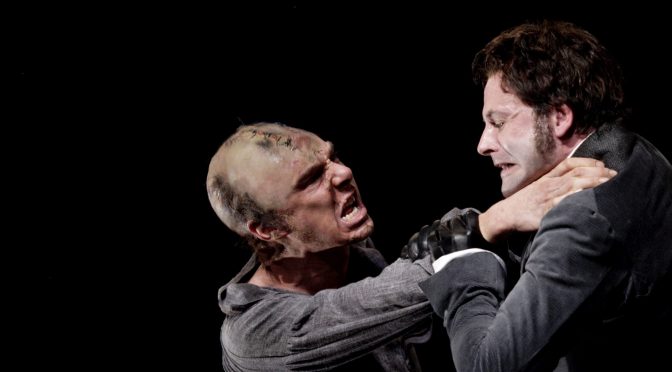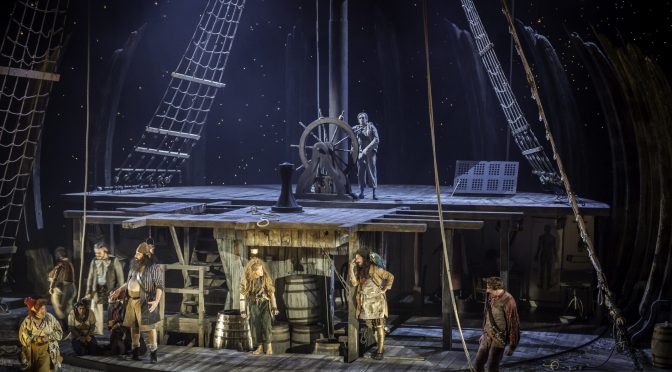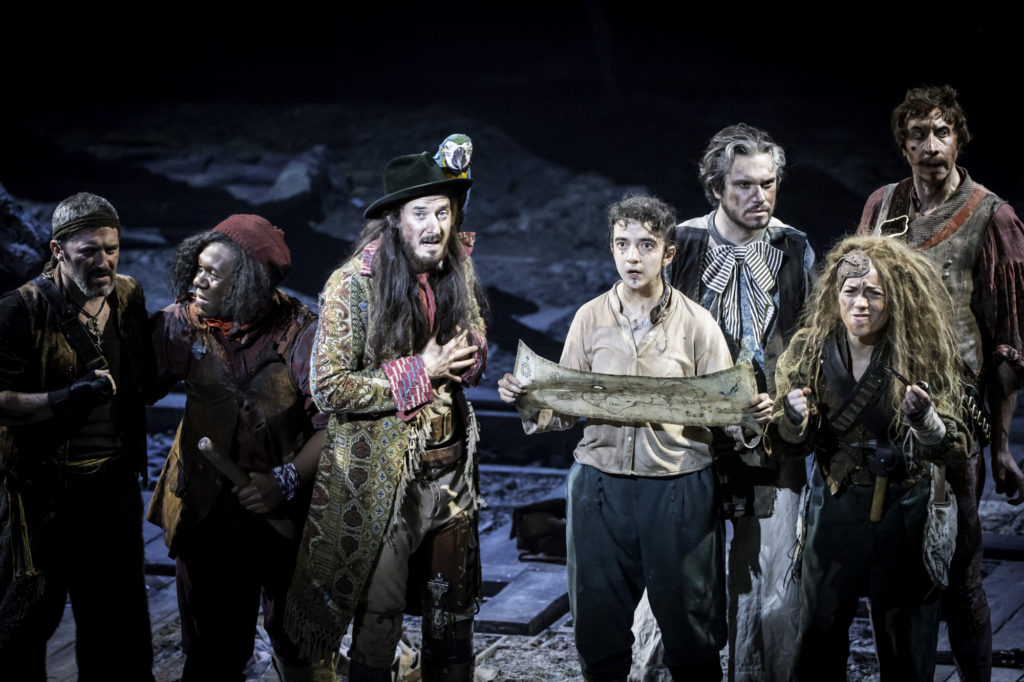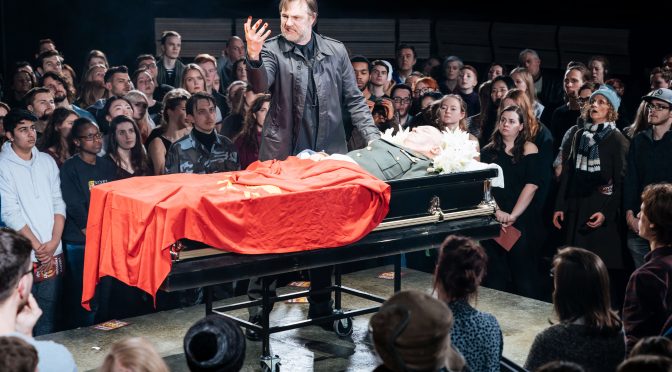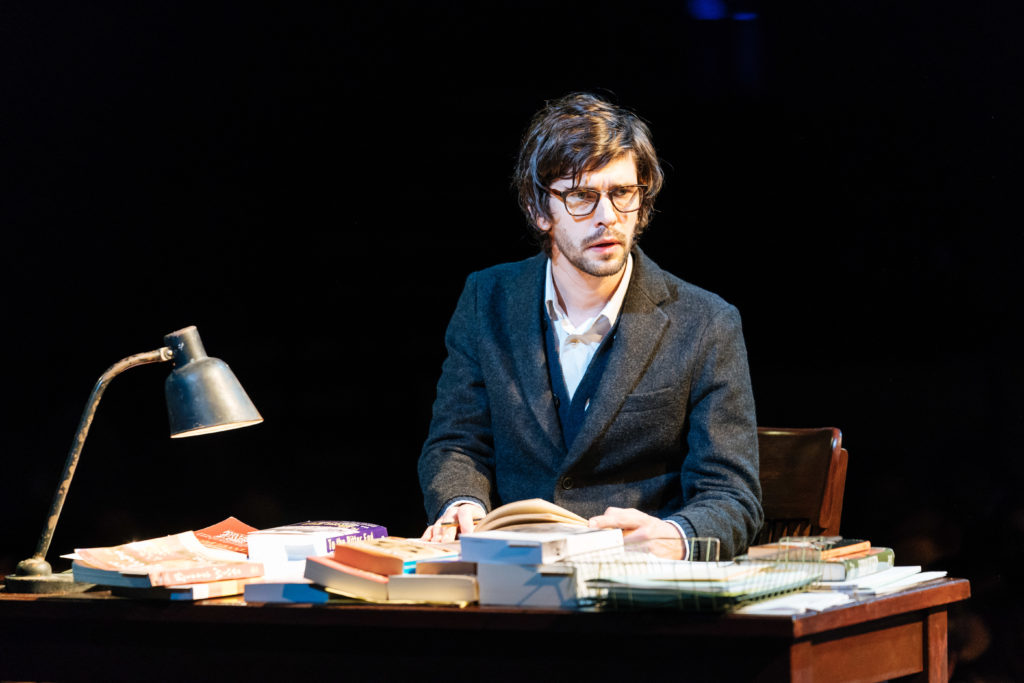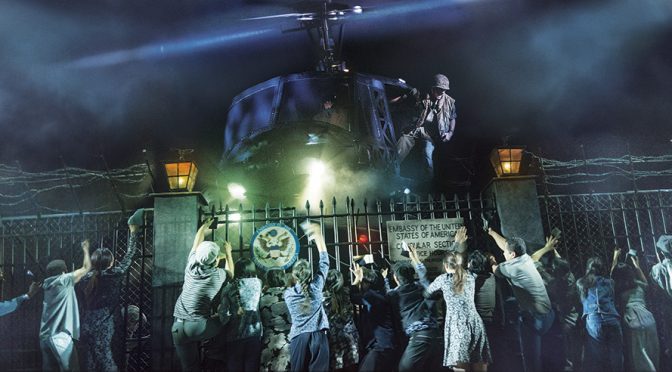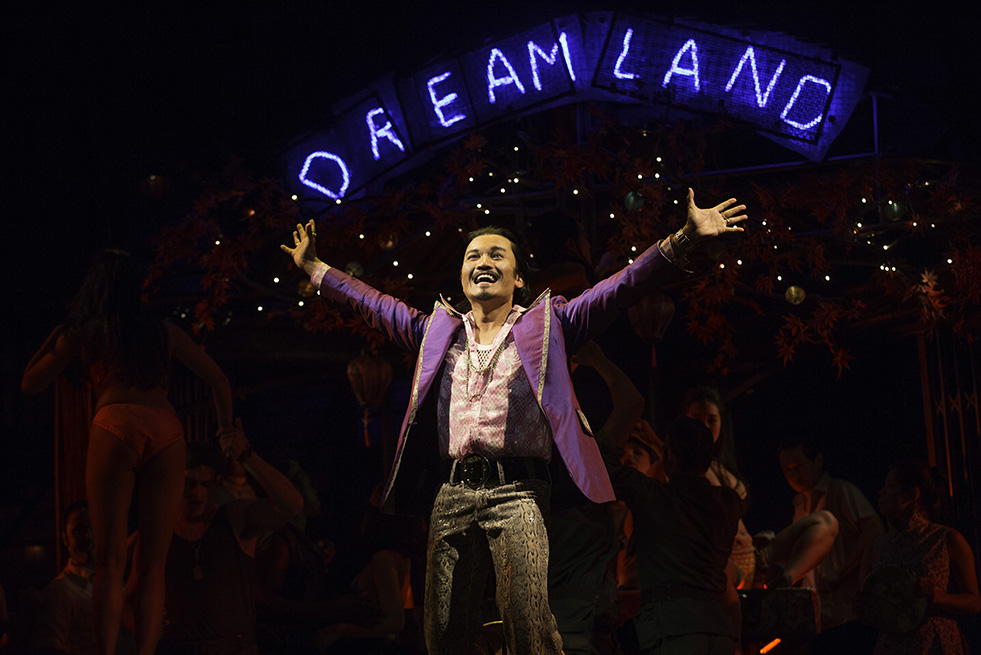Bringing out a blockbuster as its weekly offering to entertain and raise funds during lockdown, the National Theatre’s production of Mary Shelley’s story was a must-have ticket back in 2011. If you love the theatre, you love others getting exciting about it. So, it’s nice to relive some of the buzz about director Danny Boyle and his star casting of Benedict Cumberbatch. At the moment, it’s as exciting as things get… but to be honest, the show itself isn’t very good.
The production is impressive. Not least Bruno Poet’s lighting design, which Boyle uses so spectacularly. The massive rig of bulbs, which seems to take up the auditorium’s whole ceiling, is breath-taking. Boyle’s direction is swift and efficient (although based on the assumption that we all know the story), and the whole thing looks fantastic. Boyle isn’t scared of minimalism, revelling in the size of the stage, coming into the crowd and showing off the Olivier’s mechanics with pride.
During the show’s run, the title role and that of The Creature were played in rotation with Jonny Lee Miller. For the recording, Cumberbatch is the latter and gives a performance to win respect. It’s a success yet a laboured affair. The long opening “birth” scene, with The Creature as a giant toddler, is studied, well thought out, impeccably prepared and, yes, affecting – as he literally finds his feet – but it reeks of the rehearsal room.
It’s when The Creature acquires language that real problems arise. Sad to say, you wish nobody on stage, let alone the rather pompous monster, spoke. The script from Nick Dear is leaden and (sorry) without a spark of life. Shelley’s philosophical concerns are ticked off rapidly. A bit like The Creature, you end up feeling “ideas batter me like hailstones”. The characters can’t help but suffer. Lee Miller makes Frankenstein’s arrogance believable, but the character does little apart from shout. And, while there’s strong work from Naomie Harris, as his fiancée Elizabeth, her appearances feel forced.
Boyle keeps up the pace, so much so that The Creature’s thirst for revenge arrives too suddenly. Also rushed is a thematic battle between rationality and love – which could have proved interesting. Cumberbatch manages to be frightening, Miller compelling and Harris holds her own, despite the scene of her wedding night hampered by some clumsy filming that I assume had an age guideline in mind. But the show feels like Frankenstein’s motivation for his experiment – “a puzzle to be solved”. It’s impressively tackled yet, like the man himself, lacks depth and feeling.
Available until Wednesday 7 May 2020
To support visit nationaltheatre.org.uk
Photo by Catherine Ashmore

